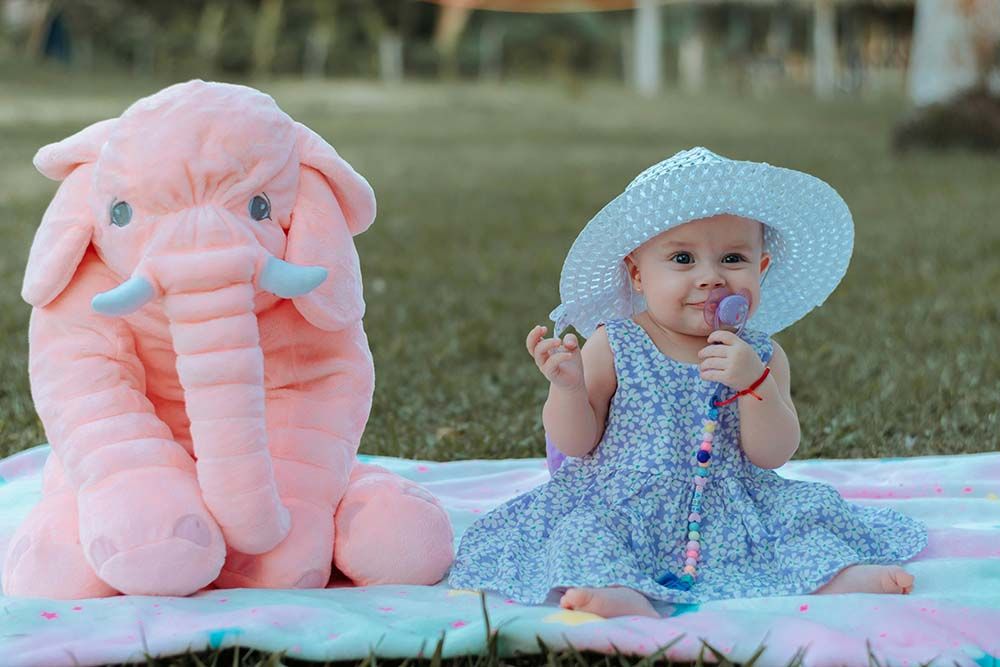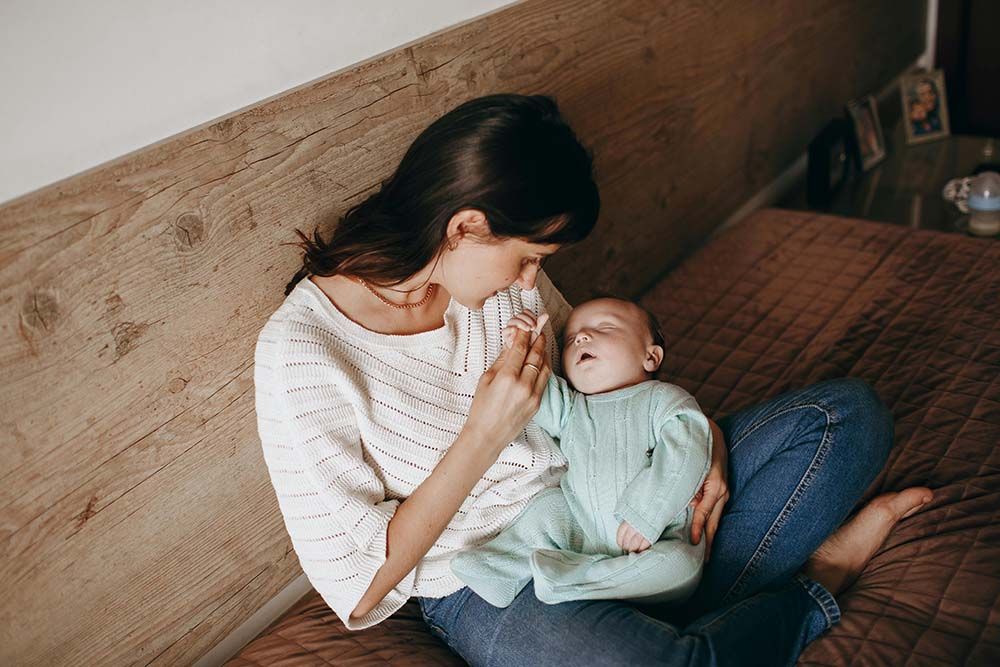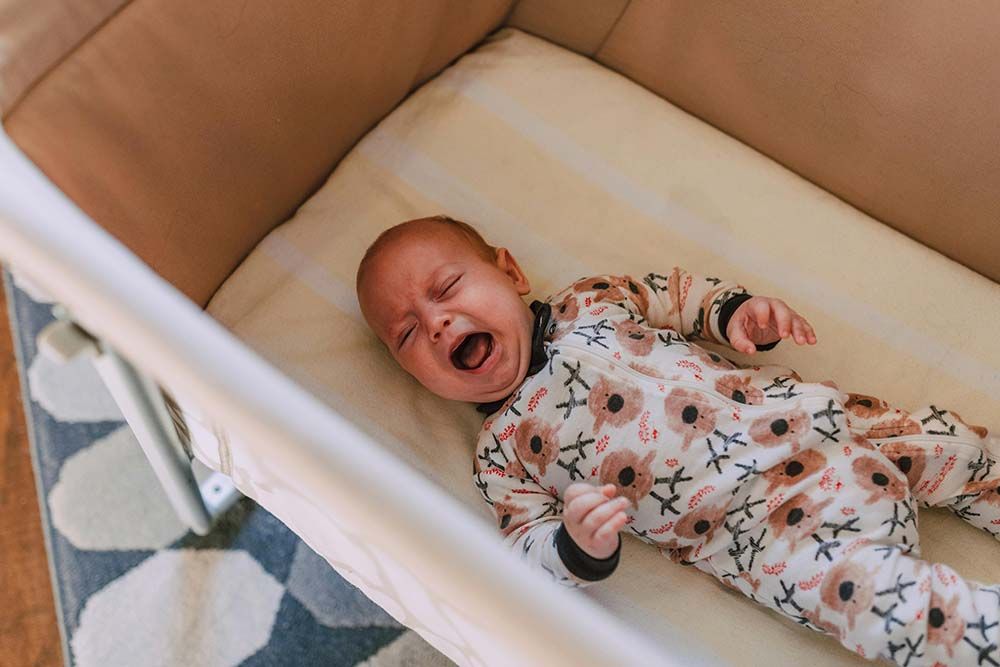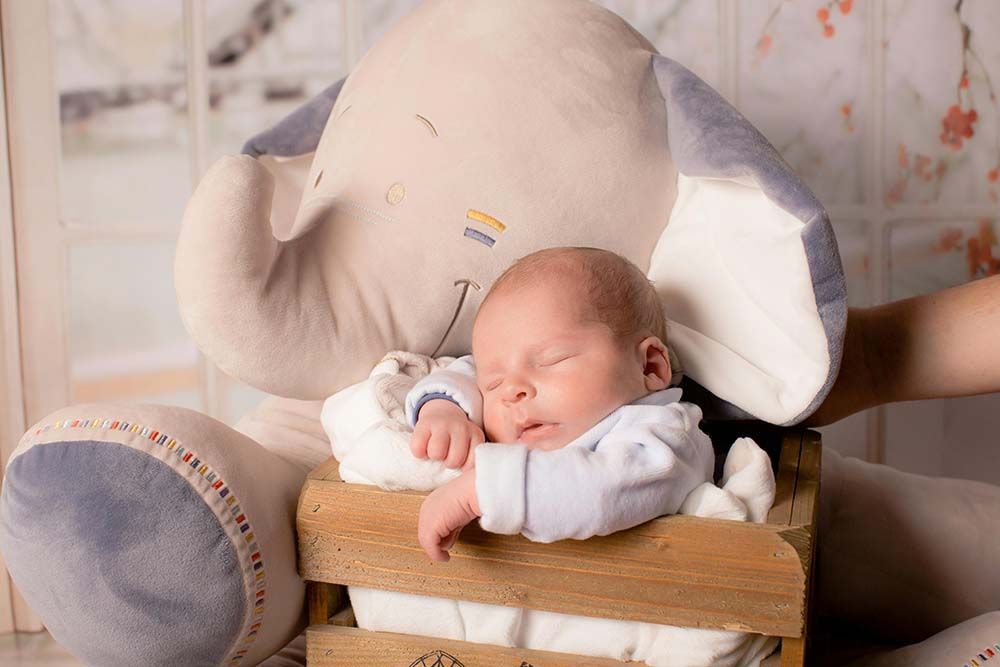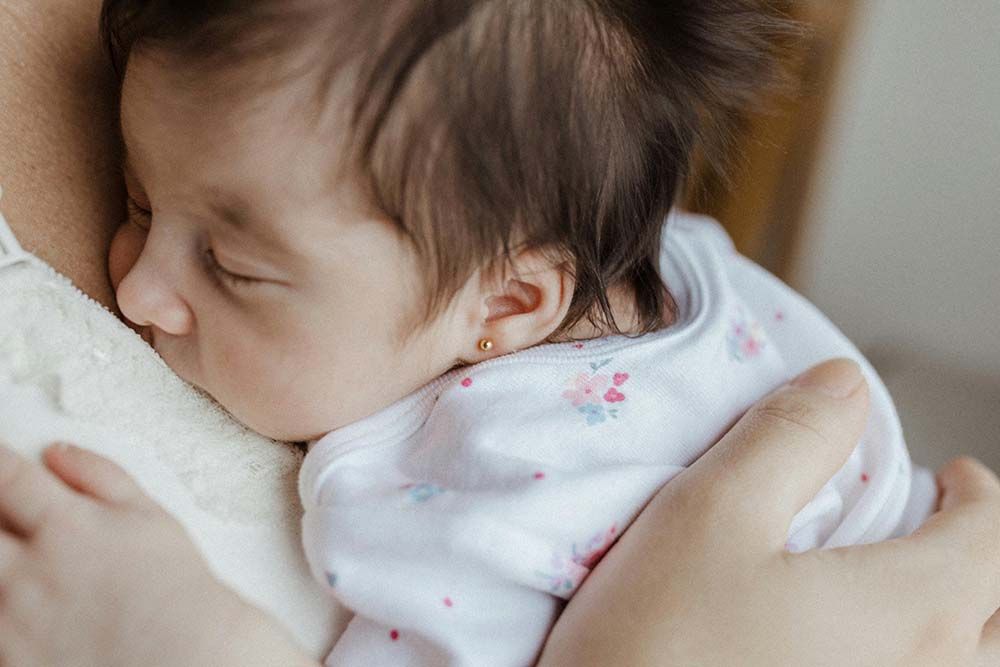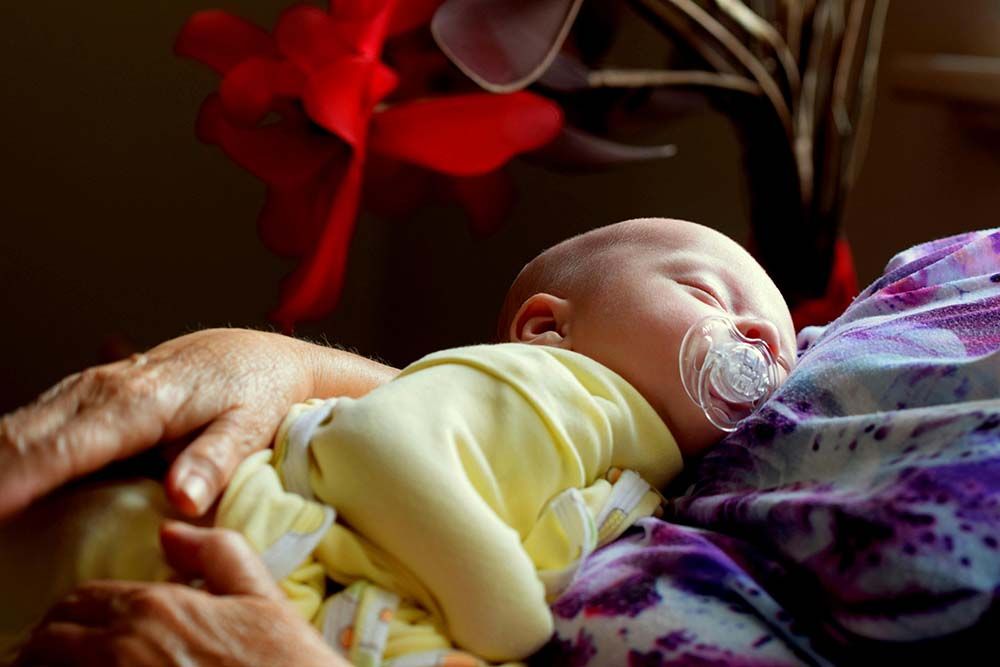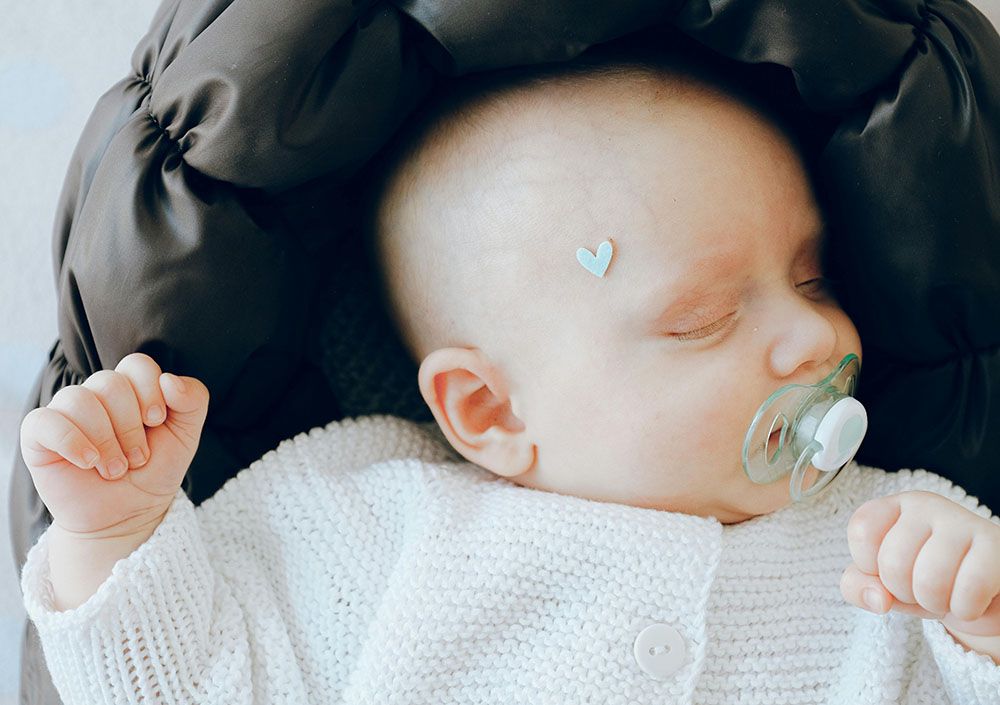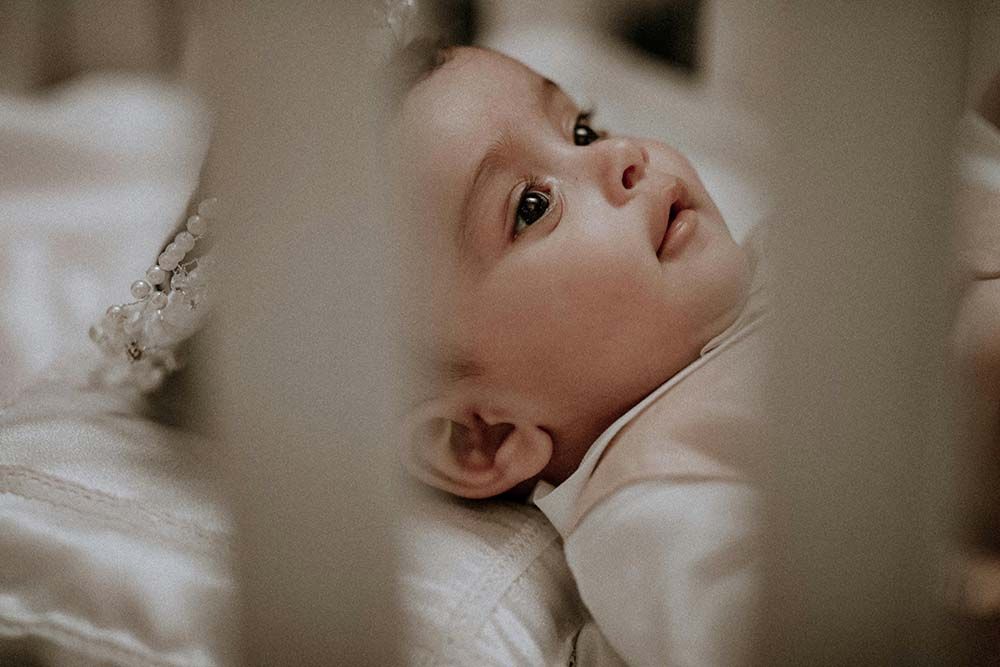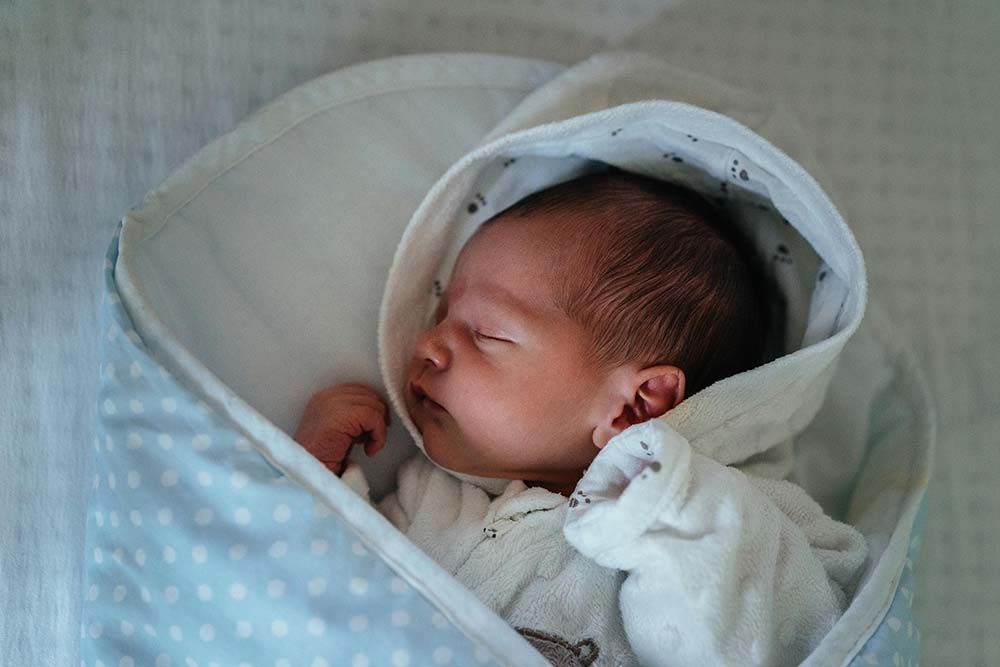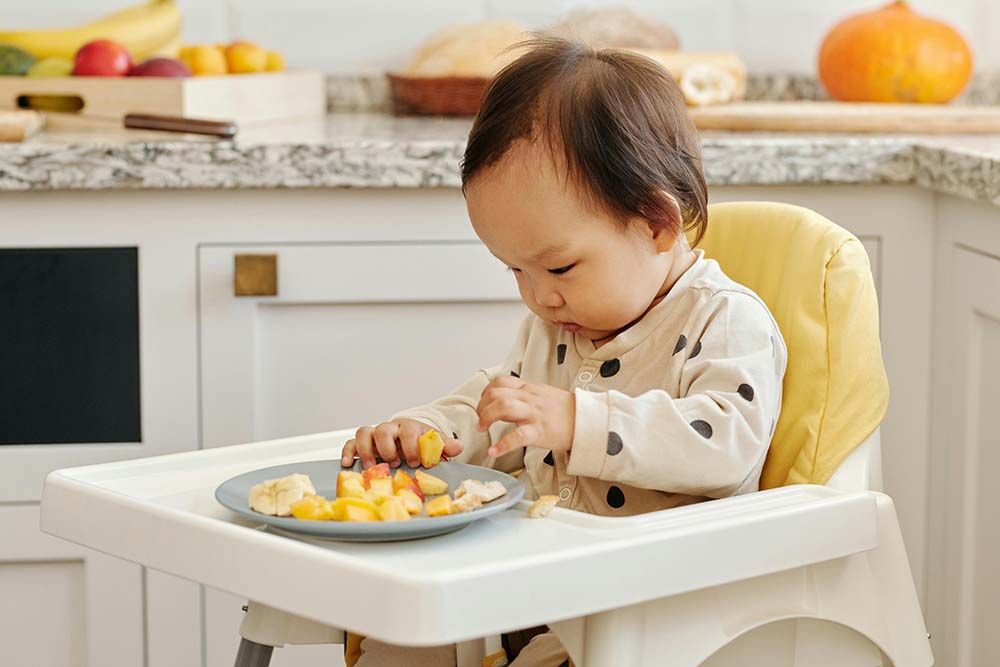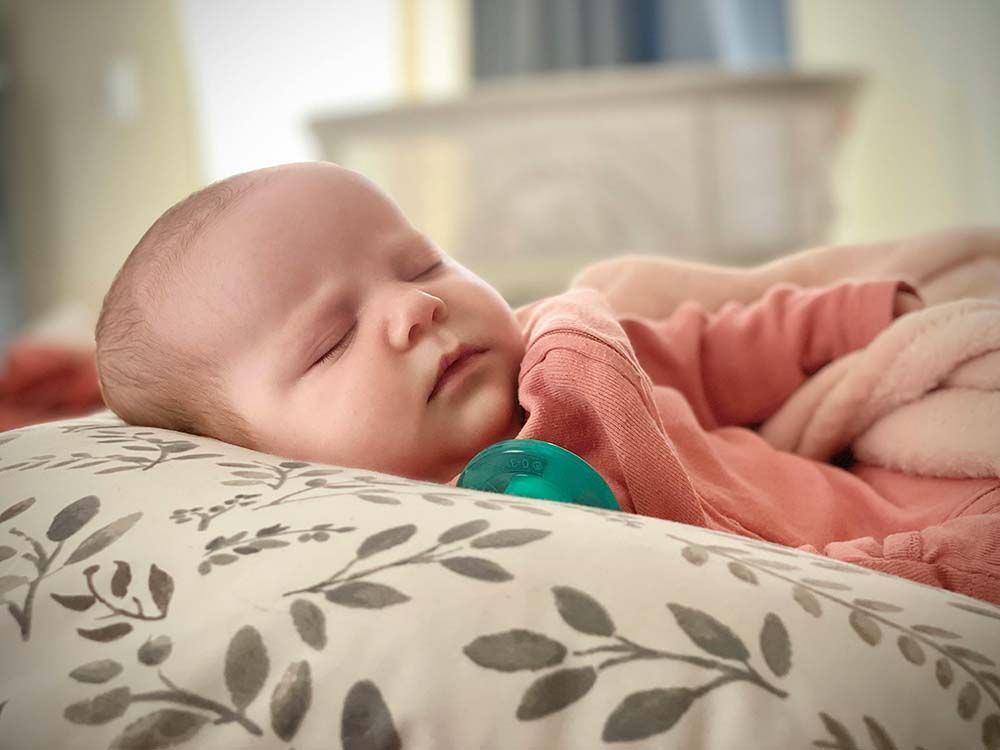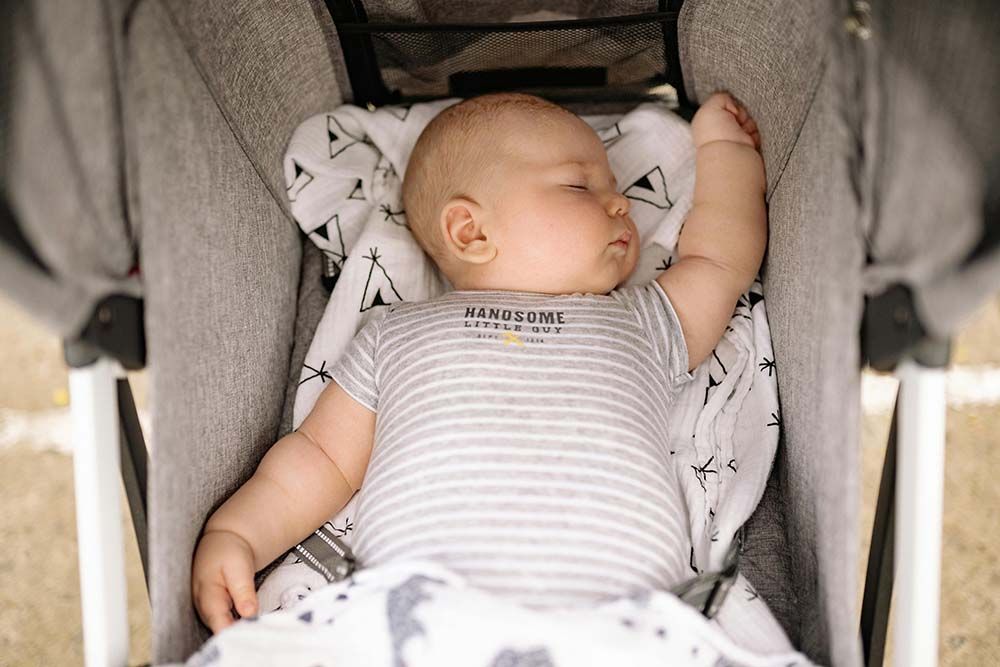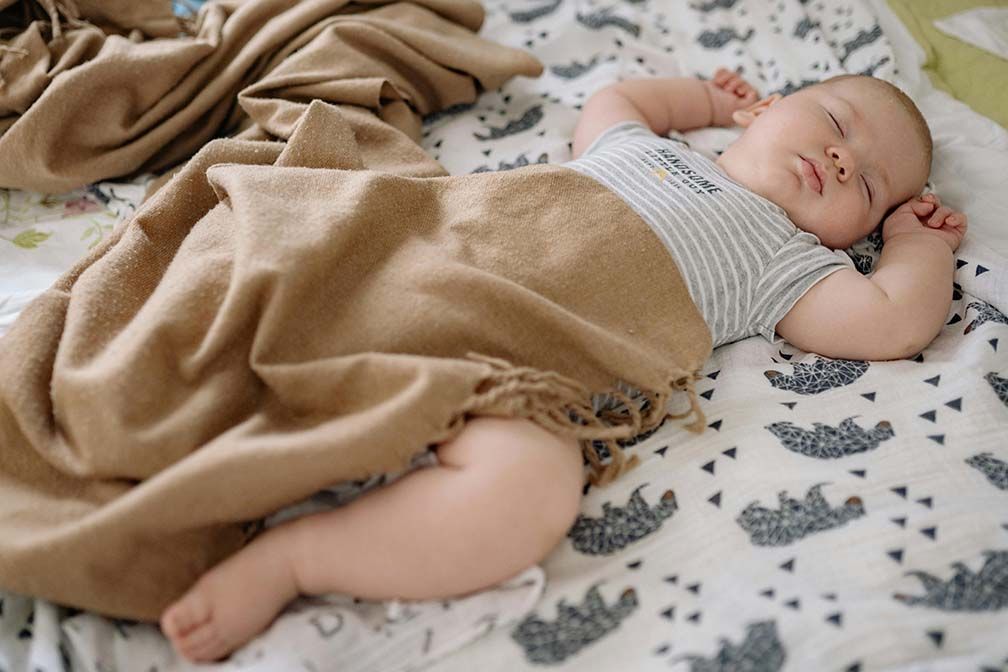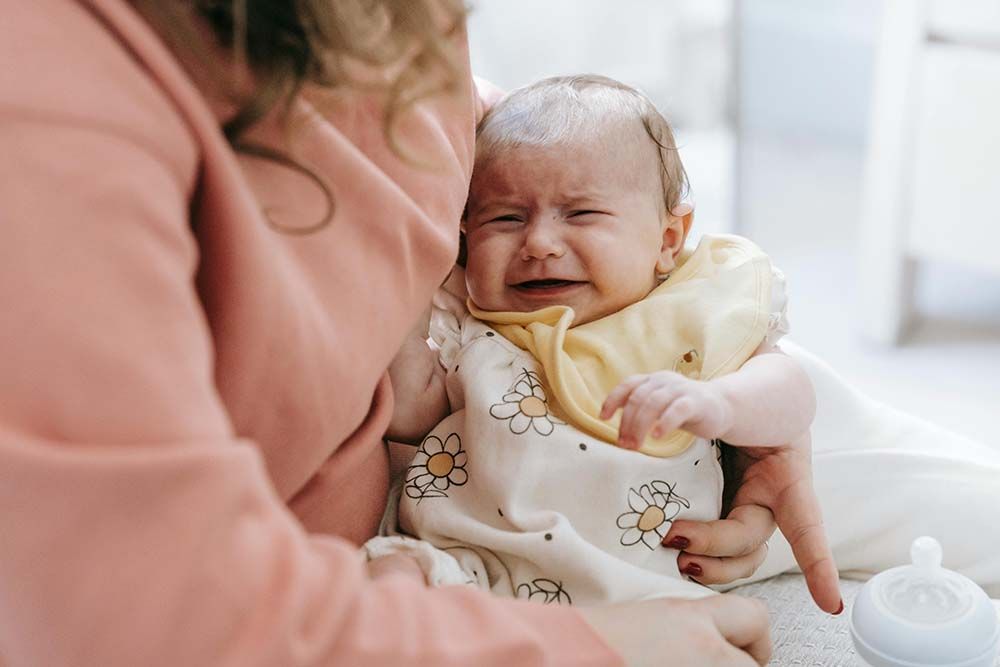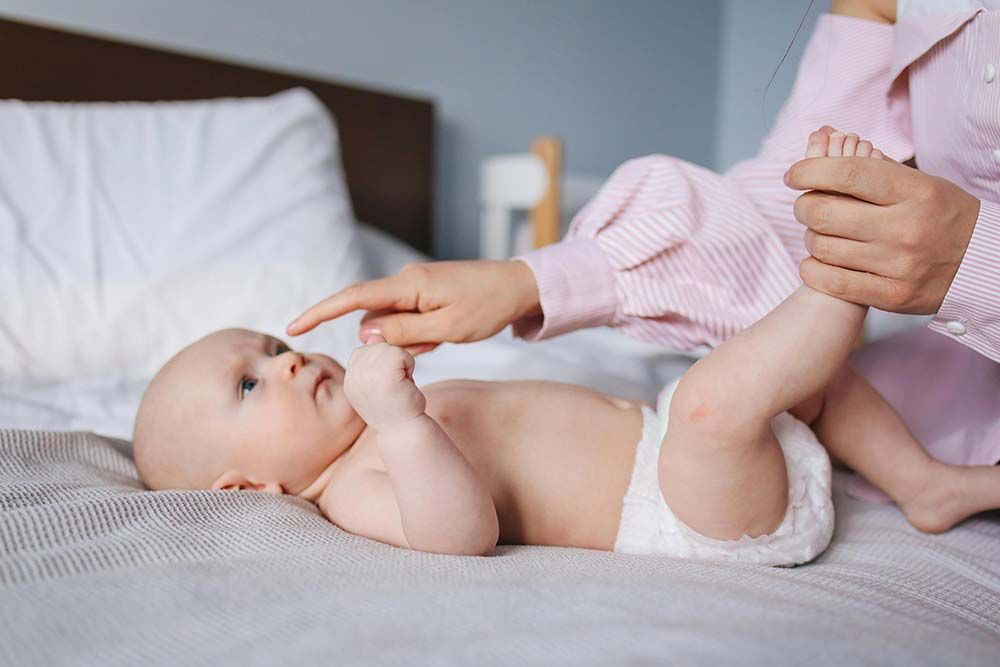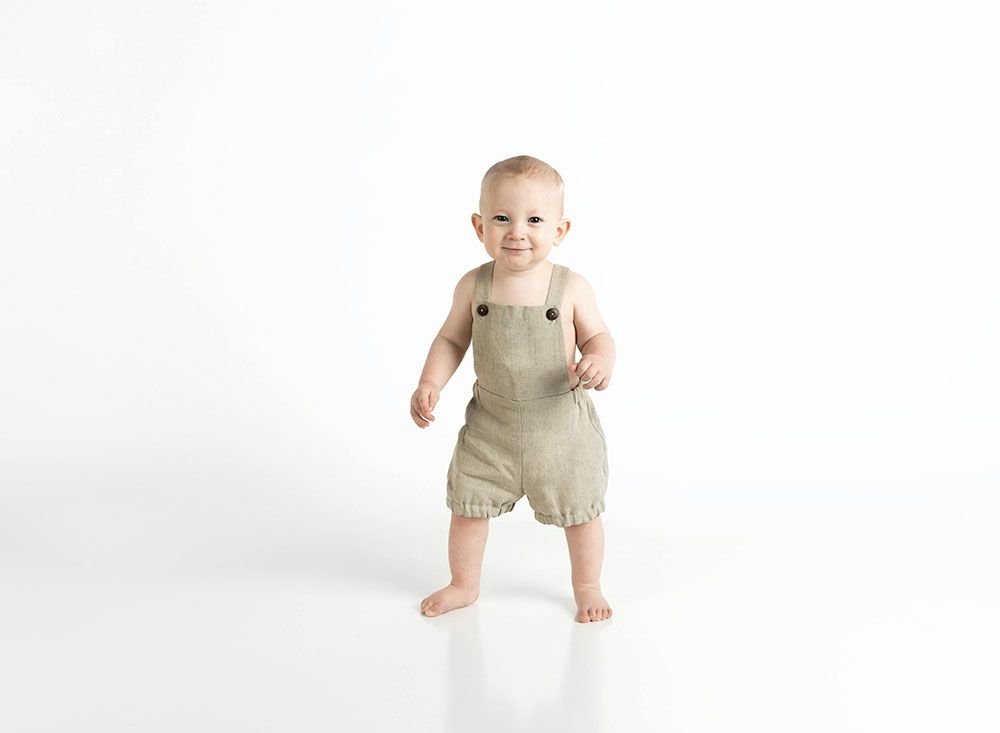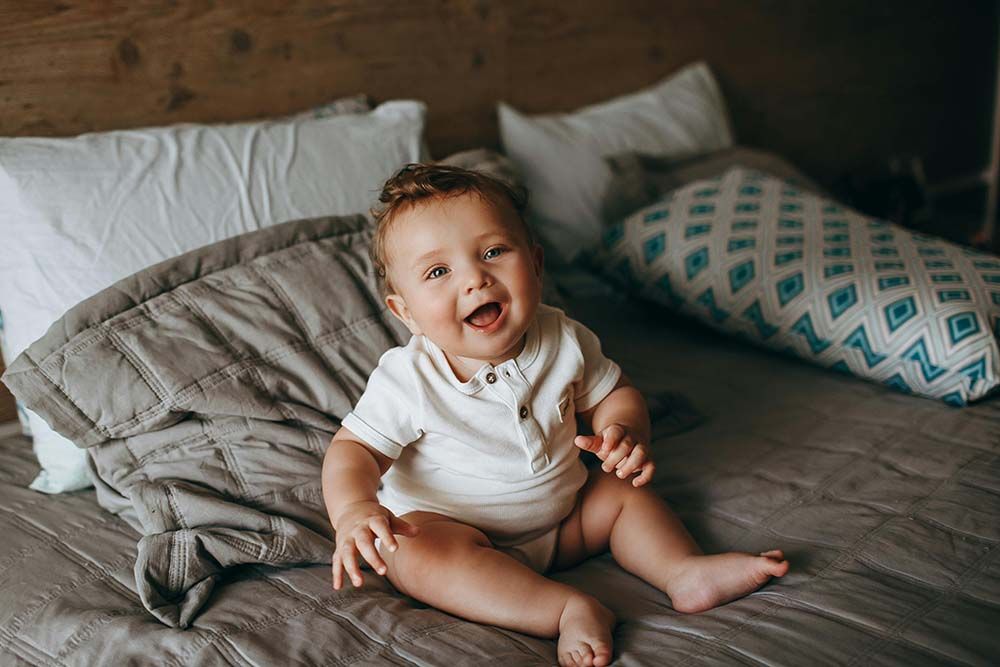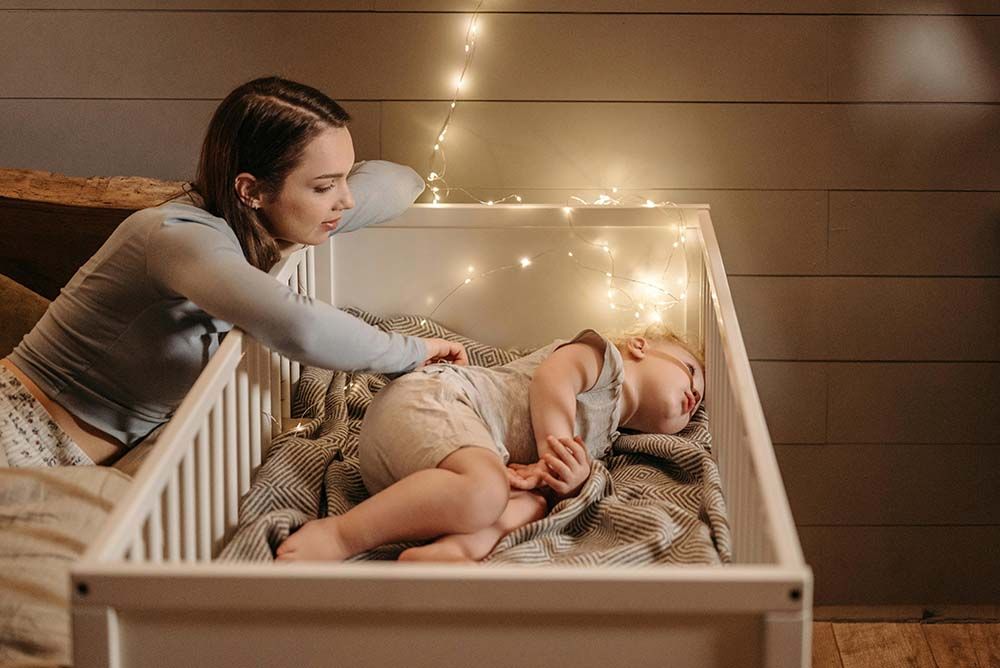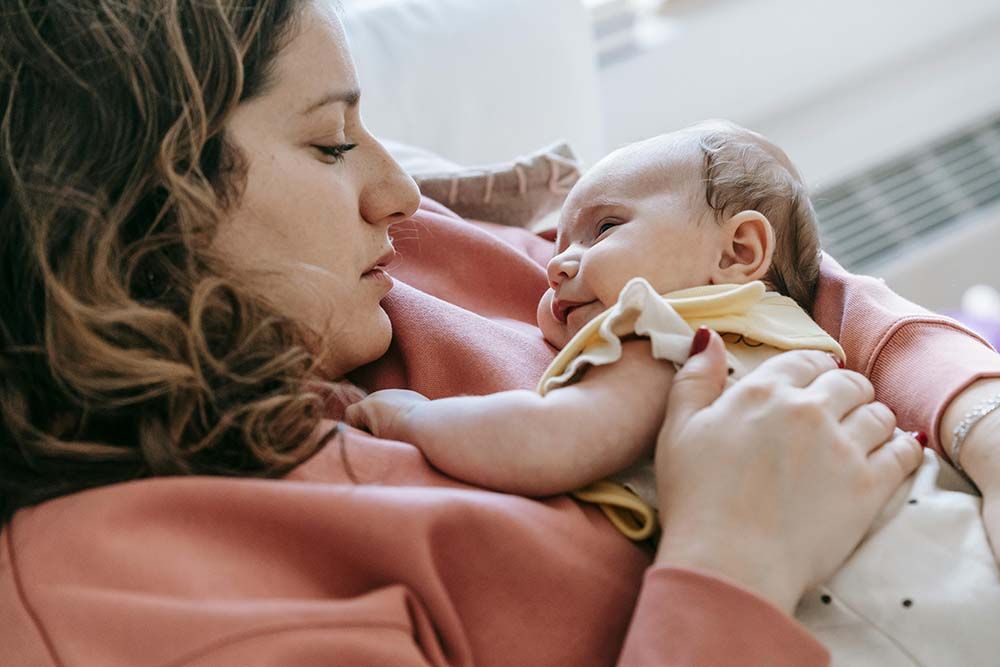

It is typical for babies to display increased fussiness when they are sick. They may refuse to eat and experience disrupted sleep patterns, which are not in line with their usual behaviour. Some sick babies won’t sleep unless held, while some sick babies won’t sleep at night. They tend to hard to fall asleep or frequently wake up. Not only can the quality of your baby's sleep be severely compromised, it can also cause anxiety for parents.
A powerful app that helps sick babies regain previous sleeping habits
Some babies are accustomed to the companionship and comfort from parents or other caregivers, causing them hard to sleep on their own like before. But with Moonycare, an easy-to-use yet powerful nursery App, can customize a reasonable and practical sleep schedule specifically for your baby, helping your baby to get back to normal routine before sick.
IN THIS ARTICLE
Why do sick babies fight sleep
How to do if sick baby won't sleep
Can you sleep train a sick baby
How to return to previous sleep pattern after recovering
Why do Sick Babies Fight Sleep?
When babies get sick, the pain and discomfort brought by sick disturb babies hard to fall asleep. Here are some reasons to explain why babies cannot fall asleep due to sick.
- Sick leads unavoidable pain and discomfort to babies, such as fever, nasal congestion, cough, headache, etc, causing babies unable to sleep or wake up frequently.
- When sick, babies’ emotion may have great changes uncontrollably, they feel uneasy and anxious, making it difficult to relax and fall asleep.
- Due to illness, babies may become more dependent on their parents' or the caregiver’s companionship and comfort, thereby they may prefer to sleep with familiar people to seek for a sense of safety.
- Sometimes, it may be the reason of medicine side effects. Some therapeutic drugs may have an excitatory effect, making babies too excited to fall asleep. Some medication induced gastrointestinal discomfort may also affect a baby's sleep.
- During illness, babies can become more sensitive and vulnerable, the noises in the home environment may interfere with a baby's sleep.
- It can also be affected by the environment temperature, too hot or too cold can affect the quality of a baby's sleep.
What to do if Baby Won’t Sleep When Sick?
How to help a sick baby sleep? We have collected some effective methods below for the needed parents to have a try.
Create a comfortable sleeping environment:
Keep the baby's sleeping environment quiet, exclude noise interference, and ensure that the room temperature is appropriate. If necessary, choose soft and breathable pajamas, creating a comfortable environment for your baby to sleep.
Bedtime routine: Maintain the fixed bedtime routine, such as bathing, storytelling, or gentle massage, providing a sense of safety to your baby.
Provide additional comfort and companionship:
Hug the baby more often to provide additional comfort and a sense of security. Besides, you can play gentle music or white noise to help babies relax.
Adjust feeding and water intake:
Provide small and frequent feeding to ensure that the baby receives sufficient nutrition and hydration. And make sure that the baby is adequately hydrated, especially when experiencing symptoms of fever or dehydration.
Be patience and flexibility:
Understand the discomfort of the baby during illness, maintain patience, and provide more care and support. Also, adjust sleep time and schedule according to the specific situation of the baby.
In addition, it is important to closely monitor changes in the baby's symptoms, such as fever, cough, difficulty breathing, etc. If the symptoms are severe or continue to worsen, seek medical attention promptly.
QA 1:How to solve nasal congestion in babies?
1. Use physiological saline for nasal drip: Physiological saline can help dilute mucus in the nasal cavity, making it easier to expel. Please ensure that the saline solution is sterile before use. Drop a few drops into each nostril, wait for about 30 seconds, and then gently suck out the nasal mucus with a nasal cannula. It can be used several times a day as needed, especially before breastfeeding or bedtime.
2. Use a nasal suction device: A nasal suction device can help clear mucus from the nasal cavity and relieve nasal congestion. Drip physiological saline into the nose firstly, wait for a while, then insert one end of the nasal suction device into the baby's nostril and gently suck out the mucus. Remember to perform gently to avoid damaging the baby's nasal cavity.
3. Maintain indoor humidity: Use a humidifier can maintain indoor humidity, helping dilute mucus in the nasal cavity and reduce nasal congestion. However, don’t forget to regularly clean the humidifier to prevent the growth of bacteria and mold.
4. Raise the position of the head: When the baby is sleeping, a small pillow or towel roll can be used to slightly raise the baby's head, which can help reduce nasal congestion.
5. Avoid stimuli: Avoid smoke, dust, and other irritants, which may aggravate this issue. Instead, you can regularly open windows for ventilation to maintain indoor air circulation.
6. Drink plenty of water: Ensuring that babies drink enough water can help dilute mucus in the nasal cavity and reduce nasal congestion. For smaller infants, the frequency of breastfeeding or formula feeding can be increased appropriately.
QA 2: How to deal with coughing at night?
Except for adjusting the sleeping posture (raise the head), keeping the air fresh, drinking water, avoiding irritants as the above mentioned, you can also consider to giving the baby some warm water or drinks to soothe the throat. But if the cough have lasting for a long time, it is strongly recommended to consult with a doctor for advanced confirmation and appropriate treatment.
QA 3: What should a baby wear when sick or fever?
There is indeed a difference in the way babies dress when they are sick or have a fever. When the baby has a fever, it is recommended to wear lightweight clothing, maintain breathability, and avoid overheating. When sick, it depends on the specific situation, ensuring comfort is sufficient. If your baby feels cold, you can add a thin blanket appropriately.
When to Seek Help from a Doctor?
In short, if you can’t decide anything or something out of your control during the sick period of your baby, rush to seek help from doctors who will provide you with professional advice and prompt treatment.
Combined with doctors’ advice and parents’ common experiences, some common emergencies needed medical help are listed below for new parents to check. During this process, it is vital for parents to pay close attention to their baby’s condition and symptoms.
- Baby gets a high fever exceeding 100.4 °F (38 °C) in the body temperature, especially for infants under 3 months old.
- Baby gets fever for lasting for more than 24 hours, or accompanied by other symptoms such as vomiting, diarrhea, rash, etc.
- Babies become harder to take every breath, coming with wheezing sounds, nasal wing flapping, or sternum depression, or they breath quicker than usual, such as more than 60 times per minute.
- Babies have severe cough continuously, especially worsening at night.
- The baby refuses to eat or drink for a long time, or the baby may experience dehydration symptoms, such as dry mouth, reduced urine output, sunken eyes, and poor skin elasticity.
- The baby shows extreme fatigue or drowsiness, turning abnormally tired and difficult to wake up.
- The baby continues to cry and is difficult to soothe.
- The baby’s consciousness gets obviously change, such as blurring, slow reactions, or even coma.
- An unexplained rash in a baby, especially accompanied by fever or other symptoms.
- The skin of the baby is changing, like yellow, pare, or bluish purple, which can be a sign of jaundice and poor blood circulation.
- The baby shows frequent vomiting or diarrhea, especially accompanied by bloody or watery stools.
Can you Sleep Train your Baby When Sick?
To be honest, providing sleep training for sick babies is not an ideal option. On the one hand, when babies are sick, they are already in an uncomfortable state, who are more sensitive and anxious and cannot live a restful sleep. Starting sleep training at this time may increase their stress and aggravate their sleep. On the other hand, adequate sleep is crucial for the recovery of the immune system. But sleep training may disrupt a baby's natural sleep patterns and affect their recovery from illness. Also, sleep training may increase the physical exertion of babies, which is not conducive to their recovery. Thus, instead of conducting sleep training, it is more important to provide additional care and support for your sick baby.
How to Help Babies Back to Original Sleep Pattern After Recovery?
After the baby recovers from illness, establishing a normal sleep schedule is a gradual process. Don't rush to return to your previous schedule all at once. Advance or postpone by 15-30 minutes every day, gradually approaching the target time. At first, establish a fixed bedtime routine, such as bathing, storytelling, gentle massage, etc., to help babies relax and prepare for sleep. Adhere to the same routine every day to help the baby gradually get used to and look forward to bedtime. Since babies are different, parents can adjust flexibly according to the actual situation of the baby to avoid excessive fatigue.
Before starting, create a comfortable sleep environment, including keeping the room quiet, maintaining a suitable temperature, and dressing your baby in soft, breathable clothing. During the day, manage daytime naps reasonably to ensure that won’t affect their sleep at night. It is encouraged to engage in moderate activities in the daytime to consume surplus energy, helping fall asleep at night in time.
When night falls, avoid overly excited activities and strong sound and light stimulation, and set aside some time before bedtime for the baby to perform the calming routine. At this process, parents need to be patient, observe your baby’s condition and make adjustments as needed. All in all, consistency and patience will help your baby gradually return to their normal sleep schedule.
Besides, to make it easier, Moonycare can be a powerful parenting tool for you, helping you track your baby’s sleep patterns and predict a customized sleep schedule for your baby. After monitoring your current sleep time, it will adjust the most practical wake windows based on your baby’s condition.
Final Words
There is no doubt that being sick can truly affect a baby’s sleep quality. During this time, the key for parents is to meet their baby’s basic needs, making them feel better. Actually, some parents ask whether it is acceptable to let their baby sleep with them when their sick baby won’t sleep. In my point of view, it is okay. However, if your baby usually sleeps in his/her own room, it would be better for you to sleep with your baby in his/her room. The familiar environment can help the baby feel more secure and fall asleep more easily. Besides, except for taking care of your baby, it is also important to focus on your personal condition. If necessary, find support from your family.




